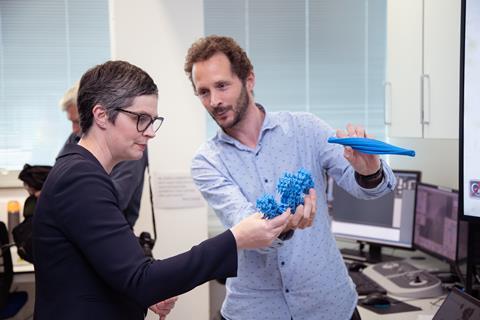Government’s science strategy placed emphasis on AI and engineering biology
Demand for the development of lab-enabled office spaces will rise in response to the AI boom, Ramboll and Wates have predicted in a new white paper on life science.
This category of building is typically defined as an uplift of orthodox office specifications which allows bioinformatic, data science or medical tech firms to be accommodated.

According to the pair, the emphasis placed on artificial intelligence and engineering biology in the government’s new science and technology framework issued by the Department for Science, Innovation and Technology’s will likely see an increase in demand for these “dry” labs.
Chloe Smith, science and technology secretary, recently revealed that UK science and research facilities will receive a share of £103m in government funding, aimed at upgrading research infrastructure.
>> Also read: Cost model: Labs in the sky
Order books in the life science sector are currently weighted towards conventional “wet” lab space, which incorporate benching, sinks, fume hoods and specialist HVAC.
Ramboll and Wates’ Speed to Market: Life Sciences Buildings report says the sector is expected to grow even further after the government prioritised funding for it as part of its ambition to make the UK a “science superpower” by 2030.
The paper, launched at the UKREIIF conference in Leeds this week, sets out the key principles for design and construction, covering how to ensure flexibility, standardisation of lab design and construction methods and key regulations to be aware of.
Co-author Jamie Young, principal design manager at Wates, said: “It can be very daunting for potential new players to get involved, given the huge investment which can be required.
“If the UK is to realise its ambition of becoming a science superpower, we need to be getting the most talented people developing the assets we’re going to need.”
Rebecca Mortimore, UK science sector co-lead at Ramboll and another co-author of the paper, said that speed to market was “becoming a critical factor” for developers, “particularly for new entrants who may not be familiar with life sciences’ requirements”.


























No comments yet